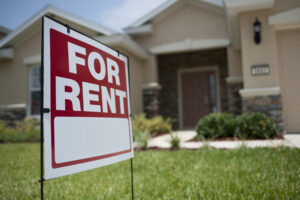
Owning rental property comes with a long list of responsibilities, and one of the most important is maintaining the plumbing system. A plumbing issue in a rental property can lead to expensive repairs, unhappy tenants, and potential damage to your property. The good news is that most plumbing problems can be prevented with regular maintenance and a proactive approach. Here’s how landlords and property managers can prevent plumbing problems in their rental properties, ensuring a hassle-free experience for both parties.
1. Regular Plumbing Inspections
One of the best ways to prevent plumbing problems in your rental property is by scheduling regular inspections. Over time, wear and tear can affect plumbing systems, and issues such as leaks, corroded pipes, or clogged drains may not be immediately obvious. A professional plumber can thoroughly inspect your pipes, fixtures, and appliances to identify potential problems before they become major issues.
What to Do:
- Schedule annual plumbing inspections with a licensed plumber to check the condition of pipes, faucets, toilets, water heaters, and other plumbing fixtures.
- During the inspection, ask the plumber to look for any signs of damage or deterioration in the plumbing system.
Regular inspections allow you to catch minor issues early, preventing them from escalating into costly repairs that could affect your tenants’ comfort and the property’s value.
2. Educate Tenants About Proper Plumbing Usage
Many plumbing problems arise due to tenant misuse or neglect, such as flushing inappropriate items down the toilet or pouring grease down the drain. By educating your tenants about proper plumbing practices, you can help reduce the likelihood of problems occurring in the first place.
What to Do:
- Provide clear guidelines to tenants on what should and should not be flushed down the toilet or poured down the drain. Common offenders include grease, oils, paper towels, and feminine hygiene products.
- Create a plumbing guide for new tenants, outlining how to properly use and care for faucets, garbage disposals, and appliances.
When tenants understand the potential consequences of improper plumbing usage, they are more likely to avoid behaviors that could lead to clogs, leaks, or appliance damage.
3. Preventive Maintenance for Appliances
In addition to regular plumbing inspections, performing preventive maintenance on appliances like water heaters, dishwashers, and washing machines can help ensure that they function efficiently and last longer. These appliances can contribute to plumbing issues if they are not maintained correctly.
What to Do:
- Water Heaters: Have your water heaters flushed annually to prevent sediment buildup, which can reduce efficiency and lead to failures. Also, check the anode rod and replace it if necessary.
- Garbage Disposals and Dishwashers: Make sure that garbage disposals are used correctly, and check the dishwasher for any leaks or issues with drainage.
- Washing Machines: Inspect the hoses for wear and replace them if they are cracked or showing signs of damage.
By performing regular maintenance, you can help prevent breakdowns and costly repairs that could disrupt your tenants’ daily lives.
4. Know the Age and Condition of Your Pipes
The age of your plumbing system is a major factor in determining how likely it is to experience issues. Older pipes, particularly those made from materials like galvanized steel or cast iron, are more susceptible to corrosion, rust, and leaks. If your property has aging plumbing, it’s important to replace old pipes with newer, more durable materials like copper or PEX.
What to Do:
- Assess the age and condition of the plumbing in your property, especially if the house or building is older than 30 years. Schedule a professional plumber to evaluate the pipes and recommend any necessary replacements or upgrades.
- Consider repiping your rental property if the plumbing system is outdated and prone to issues. This can save you from expensive repairs in the future.
Upgrading old pipes can reduce the chances of water damage, leaks, and plumbing emergencies.
5. Install Water Pressure Regulators
High water pressure can cause significant damage to your plumbing system, including leaks, pipe bursts, and appliance malfunctions. Installing a water pressure regulator can protect your pipes from the stresses of excess pressure and prevent plumbing problems from developing.
What to Do:
- Install a water pressure regulator to ensure that the water pressure in your rental property stays within the safe range (typically between 40-80 psi).
- Check the water pressure during plumbing inspections to ensure it hasn’t increased to unsafe levels.
Maintaining proper water pressure will reduce wear and tear on your plumbing and help prevent costly repairs.
6. Use Drain Screens and Filters
Clogged drains are one of the most common plumbing issues in rental properties. Hair, soap, food scraps, and debris can quickly build up in drains, leading to blockages and slow water drainage. Installing drain screens and filters in sinks, bathtubs, and showers can help prevent clogs and reduce the need for expensive drain cleaning.
What to Do:
- Install drain screens or filters in all of your property’s drains to catch debris and prevent clogs.
- Encourage tenants to clean drain screens regularly to avoid buildup.
Drain screens are an inexpensive and effective way to keep your plumbing system running smoothly and avoid expensive blockages.
Keep Your Plumbing System Running Smoothly
Preventing plumbing problems in your rental property requires proactive maintenance, proper tenant education, and regular inspections. By addressing potential issues before they become major problems, you can ensure that your plumbing system remains efficient and reliable, saving you time and money in the long run.
At Top Tier Plumbing and Rooter, we specialize in providing comprehensive plumbing services to rental property owners and managers in Riverside and San Bernardino counties. If you need assistance with plumbing maintenance, inspections, or repairs, contact us today at (951) 475-6521.

